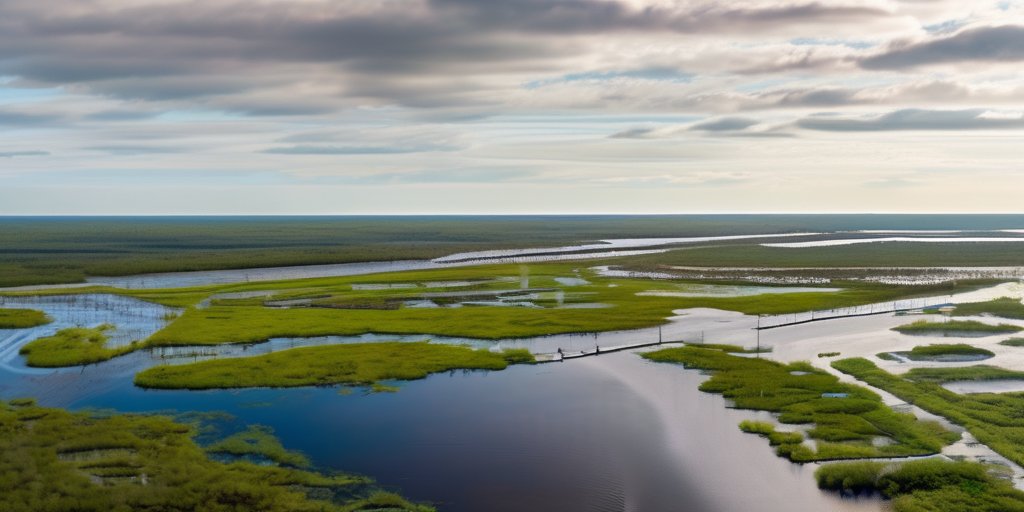Deep in the marshy wetlands of the Florida Everglades, less than 50 miles from President Donald Trump’s luxurious resort in Miami, a new chapter in immigration enforcement is unfolding with the construction of a makeshift detention facility, colloquially dubbed ‘Alligator Alcatraz.’ This facility, located at the Dade-Collier Training and Transition Airport, has been rapidly developed to accommodate up to 5,000 migrants awaiting deportation.
Florida Governor Ron DeSantis has taken charge of this project, referencing the notorious island prison Alcatraz as he promoted this burgeoning site during a recent news conference. DeSantis highlighted the inherent security benefits of the site, hinting that the natural wildlife, including alligators, will serve to deter escapes: “Clearly from a security perspective, if someone escapes, there’s a lot of alligators you’re going to have to contend with,” he stated.
Recently transformed, the airport boasts an 11,000-foot runway, now gearing up to facilitate a temporary tent city intended to serve as a holding place for migrants. As construction crews work under the sweltering Florida sun to prepare the facility, the project is generating significant backlash, particularly from immigration rights activists and local Indigenous communities, who claim the center threatens both human rights and sacred lands.
Amid the ongoing immigration policy changes seen under the Trump administration, the initiation of this facility appears to be a strategic move within a broader goal to enhance immigration enforcement. Despite the claims of low operational costs touted by Republican officials, concerns over the ethical implications of detaining individuals under such conditions—a critique echoed by Florida’s immigration rights advocates—remain at the forefront of objections.
Activists describe the facility as inhumane, paralleling it with past notorious systems of immigration detention, emphasizing that housing migrants in tents during hurricane season poses serious human rights violations and environmental dangers.
DeSantis has justified the necessity of ‘Alligator Alcatraz’ as a necessary solution, emphasizing its design as ‘completely self-contained,’ yet questions linger regarding its potential environmental impact on the fragile ecosystem of the Everglades—a habitat vital for Florida’s freshwater supply. Whether the establishment of this temporary detention center can align with both immigration control and environmental preservation remains a contentious topic as construction continues.
As Trump plans a visit to the site, the discourse around immigration enforcement under his leadership is further spotlighted, evoking a mix of support and fierce opposition from various societal factions. The unfolding developments surrounding ‘Alligator Alcatraz’ serve not only as a focal point for immigration policy but also highlight the intricate dynamics of federal action impacting local environments and communities across Florida.
